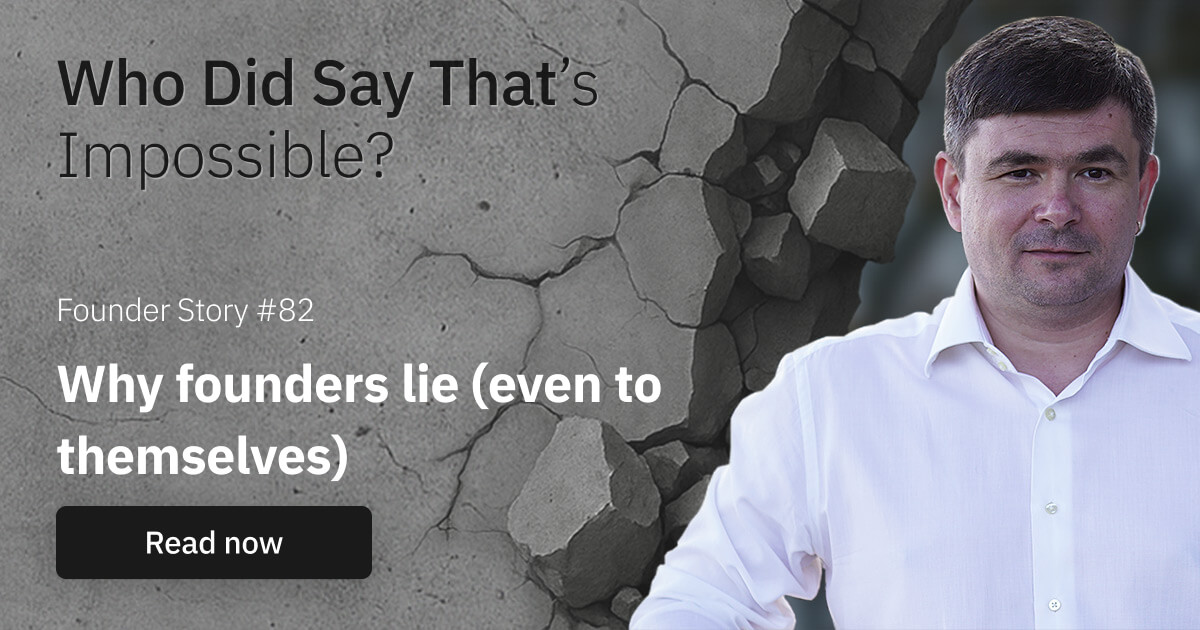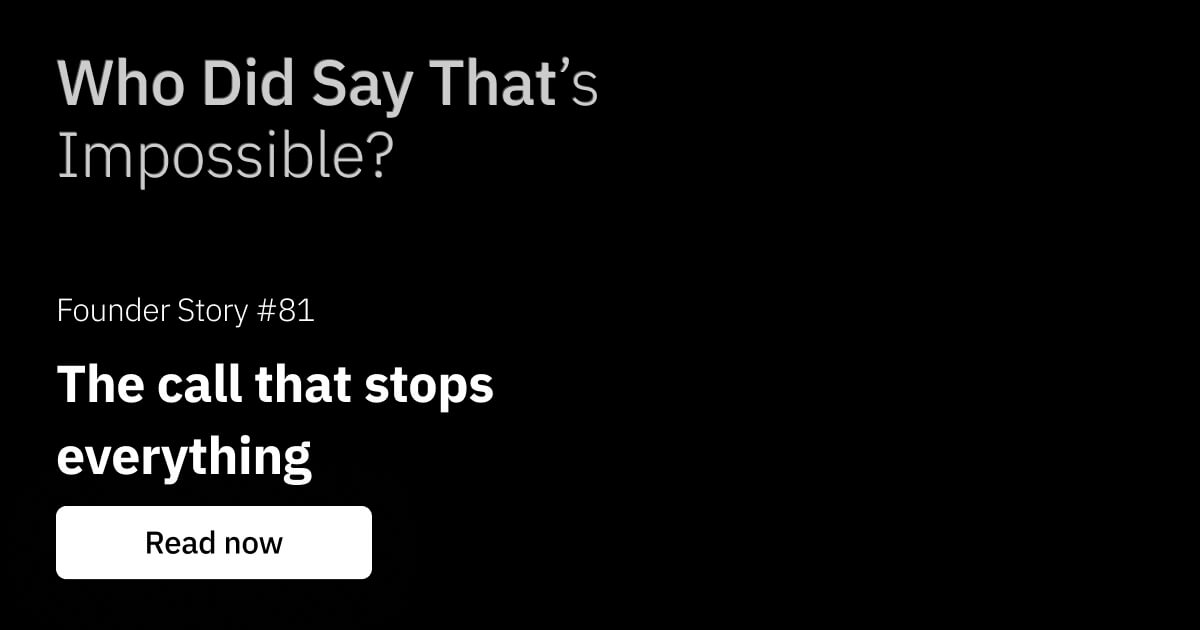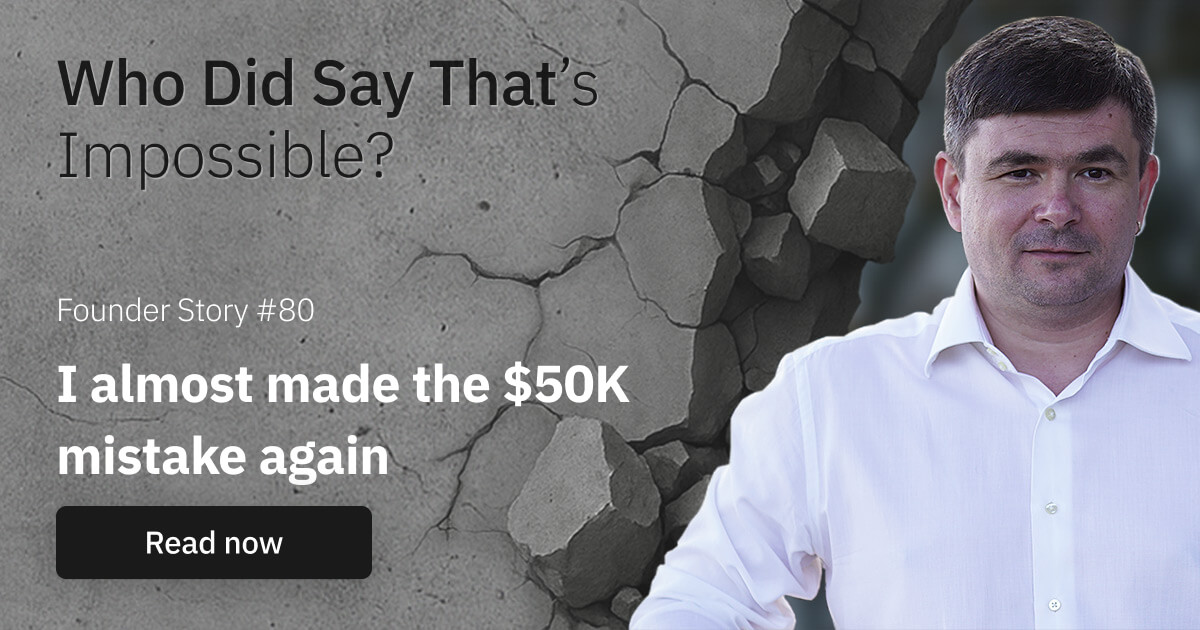Why Do You Keep Making Your Life Harder?
Or a minute of “just do as I do.”
Ever catch yourself overcomplicating things?
For no reason. Out of thin air.
Yeah, same here.
Regularly.
Maybe it’s because I love building things.
Maybe it’s the inner tech nerd.
Maybe it’s curiosity.
Or maybe… it’s just procrastination in disguise.
You pour time and effort into something that feels important…
Only to later ask: “Wait, why the hell did I even do that?”
Cue dramatic sigh and minor existential crisis.
Here’s a personal example.
We create and sell business templates. Well… my agency does.
All kinds:
- Notion setups
- Automation packs
- Webflow and Framer site templates
We list them on multiple platforms — from the Webflow marketplace and Gumroad to our own site.
Stripe here, LemonSqueezy there.
So the process is… let’s say, not simple.
But business is business — you have to track every transaction, even the tiny ones.
So I thought.
Why log every sale manually when I can automate it?
Emails come in — bot logs them in QuickBooks.
Genius, right?
Except… at the time we had, what, two sales a month?
But I went full nerd mode:
- Got lost in Make
- Learned the Stripe API
- Built a database in Airtable
I spent hours.
Learned a lot, sure.
But actual value?
Close to zero.
Here’s the thing.
Automation only makes sense when it saves you real time.
30 minutes a day = 10 hours a month.
I was saving maybe 10 minutes a week.
So?
Every Friday I logged the sales manually and go grab a coffee.
Eventually, I did automate it — but only when it actually made sense.
(And yes, I had to rebuild the whole thing anyway.)
Should’ve spent that time on marketing instead.
Every entrepreneur has stories like this.
That’s the Pareto rule in action:
- 80% of results come from 20% of efforts.
- The other 80%? Usually a huge distraction.
But here's the twist — simple isn’t always easy.
Behind that “clean” UI or feature is a war zone of design, dev, and product calls.
A “tiny update” might take a month to build.
What’s wild now?
We’re entering a new era of Vibe Coding.
We’re seeing tools that let you build full-on apps… by just chatting with AI.
Still janky?
A bit.
But the trend is clear.
Soon anyone can build and ship.
No dev team.
No investors.
Just go.
Sure, security and scalability will matter.
But we’re almost there.
And it’s going to change everything.
When It’s Okay to Complicate Things
The key is knowing why.
What’s the goal?
Like Adizes says — in the infancy and early growth stages, a business doesn’t need complexity.
What you need is:
- Understand your market and what it needs
- Know what you can actually offer
- Build a stable flow of clients
That’s it.
You don’t need Gantt charts.
You don’t need a fancy CRM.
You don’t need nine layers of Notion permissions.
What you do need:
- Checklists
- A basic knowledge base
- A notebook where you track what worked and what didn’t
The tools will come with growth.
CRMs, wikis, calendars, Zoom calls, landing pages, bookkeeping, automations.
Comes when it actually serves a purpose.
The Foundation of a Personal Brand
About eight months ago, I started taking social media seriously.
Not my first attempt, though.
The first one?
A total flop.
Back then, I had no clue how it worked.
I thought I was being clever — built an AI content generator.
The result?
Garbage.
This time, I approached it differently.
Systematically.
First, I admitted my weak spots and built a plan around them:
- I didn’t know how to write
- I didn’t know what to write
- I didn’t understand the process
- English isn’t my native language
- And I constantly mess up letters while typing
Even writing a single paragraph felt like a struggle.
So I spent six months learning.
Studying copywriting.
Experimenting.
Building my own system.
I created AI assistants, editors, translators, and a basic voice-to-Notion transcriber for notes.
Collected the right tools.
Set up automations.
Now I have a simple system, that’s actually pretty complex under the hood, tailored to my quirks and needs.
Because I took the time to understand:
- What I needed
- Why I needed it
- And how it should work specifically for me
So yeah, I invested time into building something that’s simple to use.
Because that was the whole point.
To make my daily life easier.
That was the goal.
And that’s where it all begins.
Always.
Disclaimer.
Every business has its nuances, and every founder has their unique context and resources. Whether or not my advice applies depends on your situation, experience, and needs. But one thing is universal—use your brain.
Think about how to apply the advice in your context before acting.
Your way.
- Eugene
Join the “most offbeat” Businessletter on entrepreneurship.

Hi, I’m Eugene.
20 years later — 80 people, 3 continents, 7-figure revenue.
But for many years, I was the bottleneck in my own business.
Now I help founders escape the same trap. Through systems that actually work, not theory.
I write weekly: operational war stories, decision systems, and lessons learned the hard way.
For founders who want to build without burning out.
More Stories
Founder Stories

Why founders lie (even to themselves)
Or minute of freedom that comes after you exit

The call that stops everything
Or minute of realizing your business isn't ready for this


